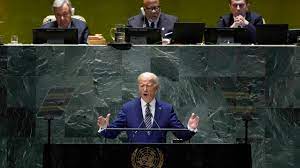World leaders have issued a call for the expansion of the World Bank to enhance its lending capacity. However, the bank has underscored that this expansion hinges on securing funding from the private sector, as reported in a recent statement.
The President of the World Bank, Ajay Banga, conveyed that the institution’s focus has broadened beyond poverty eradication to encompass pressing global challenges such as pandemics, climate change, and food security. In an exclusive interview with CNBC’s Tanvir Gill during the Group of 20 (G20) leaders’ summit in New Delhi, Banga emphasized the need for private sector involvement. He stated, “There’s no way there’s enough money in the multilateral development bank, or even in governments… that can drive the kinds of changes we need for this polycrisis. Getting the private sectors’ capital and ingenuity into the game is going to be very important.”
Banga further elaborated on the bank’s efforts to boost its lending capacity, stating, “We are digging deep to boost our lending capacity, but we are going further, creating new mechanisms that would allow us to do even more.” He shared these insights during the G20 leaders’ summit, highlighting the bank’s commitment to expanding concessional financing to assist more low-income countries in achieving their goals. Additionally, he mentioned a creative approach to fostering international cooperation in addressing shared challenges.
At the summit, U.S. President Joe Biden echoed the sentiment that the World Bank cannot tackle these challenges alone. Biden called on G20 leaders to provide increased support to the World Bank and other multilateral development banks over the next year, with the goal of enhancing the institution’s capacity to aid low and middle-income nations.
 To achieve this objective, Biden requested Congress to allocate more than $25 billion in additional financing for the World Bank. This financial injection is expected to empower the bank to further assist developing countries in their pursuit of development and economic objectives. The White House noted that this initiative would strengthen the World Bank and enable it to provide resources at the scale and speed required to address global challenges and meet the urgent needs of the poorest countries.
To achieve this objective, Biden requested Congress to allocate more than $25 billion in additional financing for the World Bank. This financial injection is expected to empower the bank to further assist developing countries in their pursuit of development and economic objectives. The White House noted that this initiative would strengthen the World Bank and enable it to provide resources at the scale and speed required to address global challenges and meet the urgent needs of the poorest countries.
The World Bank, originally established in 1944 to support post-World War II reconstruction in Europe and Japan, has evolved significantly over the years. It began with just 38 member nations and has since expanded to include a majority of the world’s countries.
Biden’s administration has previously emphasized the need to provide developing countries with alternative funding sources to reduce their reliance on China and support their recovery from the effects of Russia’s war on Ukraine. As part of this effort, the administration sought $3.3 billion to bolster development and infrastructure finance provided by the World Bank.
In addition to increasing resources for poverty reduction in developing countries, the expansion of the World Bank also aims to assist these nations in transitioning to renewable energy sources. President Banga expressed his vision of securing funds for renewable energy initiatives, which could potentially attract private sector investments at ratios of one-to-one, two-to-one, or even three-to-one. He highlighted the enthusiasm of investors to engage in renewable energy projects in developing countries, emphasizing their confidence in the profitability of ventures related to solar, wind, and geothermal energy.
Both the World Bank and the International Monetary Fund (IMF) have pledged to strengthen their partnership to support countries facing challenges related to debt, sustainability, and digital transformation. In a separate interview with CNBC’s Martin Soong at the G20 summit, the IMF’s Managing Director, Kristalina Georgieva, emphasized the evolving landscape of global lending institutions. She stressed the importance of addressing the pressing issue of mounting debt, with approximately 25% of emerging market debt approaching distressed levels. Georgieva highlighted the increasing number of low-income countries experiencing or nearing financial distress.
Georgieva further emphasized the complementary roles of the World Bank and the IMF, explaining that the World Bank possesses deep sectoral expertise that the IMF does not. The IMF’s strengths lie in advising on fiscal policies to facilitate the transition to a digital economy, assessing new types of risks, including those associated with cryptocurrencies and climate change, and utilizing data to inform policymakers on current and future concerns.
In conclusion, the call for the World Bank’s expansion to confront global challenges beyond poverty eradication has garnered support from world leaders, including President Biden. The key to realizing this expansion lies in securing private sector funding. As the institution evolves to address a broader array of global issues, it aims to provide increased concessional financing to low-income countries while fostering international cooperation.
The World Bank’s expansion also aims to support developing nations in their transition to renewable energy sources. Moreover, the partnership between the World Bank and the IMF is set to strengthen, with a focus on addressing debt-related challenges and promoting synergies to tackle global issues effectively. These developments reflect the changing landscape of international financial institutions and their commitment to working together for the greater good.
